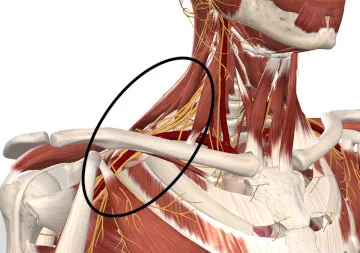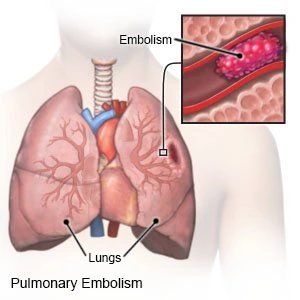Fibromyalgia: Symptoms, Causes, and Treatment
What is a Fibromyalgia?
Fibromyalgia(formerly called fibrositis) is a chronic disorder that causes widespread pain, fatigue, and other discomforts.
People with Fibromyalgia describe it as a constant muscle ache.
It is often confused with arthritis but unlike arthritis, it affects soft tissues and doesn’t cause damage to joints or muscles.
The disease does not progress, which means it does not worsen over time. Women are more likely to develop it than men.
Many people who are suffering from it also have tension headaches, temporomandibular joint (TMJ) disorders, irritable bowel syndrome, and depression.
Symptoms
Widespread pain: The main symptom of fibromyalgia ispain. People have reported constant pain in muscles and other soft tissues around their bodies.
The pain can occur on both sides of the body and on the upper or lower part of the body.
The pain can range from mild to unbearable.
Over-Reacts: Your body gets hurt from the things that normally are not painful. You can feel the pain in more than one region of the body.
Fatigue: People with it complain about constant tiredness.
Pain is generally a reason to disturb your sleep.
There are many patients with fibromyalgia who are also suffering from other sleep disorders.
Fibro fog: Also known as ‘fibromyalgia fog’ is a condition of feeling frizzy.
Signs of fibro fog are trouble in staying focussed and memory lapses.
Painful periods and troubled Menopause: Symptoms of Fibromyalgia have generally been more severe in females than in males.
A painful period is a common symptom in females.
Fibromyalgia can become worse during the transition to Menopause. The symptoms of menopause and fibromyalgia are similar.
Other symptoms include:
- Dizziness
- Stiffness
- Dry mouth
- Sensitivity to cold or heat
- Sensitivity to loud noises or bright light
- Headaches
- Difficulty in sleeping
- Numbness
- Tingling in hands and feet
- Migraine
There is no particular test to diagnose it.
Fibromyalgia symptoms are similar to other conditions symptoms.
So, it is often misdiagnosed.
CAUSES
The causes of fibromyalgia are still undetermined. There are still several kinds of research going on for the said disease.
In fact, in the past, several healthcare professionals raised questions on its existence.
Body’s central nervous system plays a big role in the condition, It is said that pain is actually originating in your brain when it feels like coming from a particular area of the body.
Some potential factors can slightly clear the picture on why people developed fibromyalgia:
Genes
Genes may play a role. Fibromyalgia often runs in families. Someone in your family having the condition puts you at high risk of developing it.
Trauma
People who go through certain traumas in their lives may develop the fibromyalgia condition. Trauma can be physical, mental, or emotional.
It is also seen as associated with Post-traumatic Stress Disorder (PTSD).
Stress
Stress is very harmful to mental balance. It affects the brain very acutely.
One theory about the fibromyalgia pain is that the brain lowers its tendency to tolerate the pain. Something that was not painful before becomes very painful over time.
Many researchers state that repeated nerve stimulation causes the brain and spinal cord of people with fibromyalgia to change. Due to this change, there is an abnormal increase in levels of certain chemicals that are responsible for signaling pain.
What factors place you at risk for Fibromyalgia?
Numerous diseases and other issues raise the risk of developing fibromyalgia, even though its precise origin is unknown. Risk factors for fibromyalgia include:
- Your age: How old are you? It is more common for people over 40 to get fibromyalgia. However, anyone can be impacted by it, including kids.
- Your birth-assigned sex: Fibromyalgia is twice as common among people assigned female at birth.
- Chronic diseases: Fibromyalgia is more common in those with osteoarthritis, depression, mental disorders, chronic back pain, and irritable bowel syndrome.
- Infections: Infections can cause fibromyalgia in certain persons, particularly if the symptoms are severe.
- Stress: Although it is impossible to quantify how much stress you experience, too much stress can have negative health effects.
- Traumas: Fibromyalgia can occasionally occur in people who have suffered a severe injury, a physical or emotional trauma, or both.
What triggers start an attack of Fibromyalgia?
Fibromyalgia flare-ups might be caused by specific experiences or adjustments in your life. Since each person is unique, what causes symptoms in some may not cause them in you. Generally speaking, a flare-up can be caused by anything that makes you more stressed, such as:
- emotional strain caused by your social life, work, or finances.
- alterations to your regular schedule.
- Dietary changes or inadequate nutrient intake.
- Hormone alterations.
- Sleeping at various times or not getting enough sleep.
- variations in the weather or temperature.
- Getting sick.
- introducing new drugs or therapies, or making adjustments to your regular fibromyalgia therapy regimen.
Fibromyalgia Diagnosis
Since there is no particular test to diagnose fibromyalgia, it is very difficult to diagnose it.
Previously, doctors used to do a ‘tender point’ exam. It is the examination where 18 specific points on the body are firmly pressed to check how many of them were painful.
‘Tender point’ exam is not used widely now.
But now, If you have ‘widespread’ pain continuously for 3 months or longer your healthcare professional may diagnose you with fibromyalgia. “Widespread” means the pain is on both sides of the body, and above and below of your waist.
Your doctor may ask you to take some tests to rule out other conditions and diseases.
After the detailed examination, your doctor would reason out other conditions that can cause the pain.
TREATMENT
There is no cure for fibromyalgia yet. But there are several treatments and medications available that can ease the disorder.
Doctors who treat fibromyalgia are:
- Internists (internal medicine specialists)
- Rheumatologists
- Neurologists
- Pain management doctors
The focus is more on reducing symptoms.
Doctors generally recommend medications to reduce pain and help you sleep better.
Exercising and therapies like massage therapy can ooze the pain.
Seeking professional help from a therapist or stress-releasing techniques can benefit you physically and mentally.
There is no cure available for fibromyalgia but more treatment is available now than before. Constant pain due to fibromyalgia can make your life miserable. So, it is best to reach your doctor as soon as possible.
Which four phases of fibromyalgia are there?
The condition of fibromyalgia is dynamic. This means that there is no set sequence in which your symptoms will manifest; rather, there is no way to predict when or how you will be affected by fibromyalgia symptoms.
Depending on how you feel, your doctor may decide to treat your fibromyalgia in phases. There is no step-by-step treatment regimen in these stages. Since each person is distinct, the effects of fibromyalgia on your body will also be unique. The phases are more like to broad classifications that might assist you in determining the kind of remedies you’ll require to control your symptoms. The following are the four phases of fibromyalgia treatment:
Non-pharmacological treatments: To strengthen, relax, and loosen your muscles and joints, your doctor or a physical therapist will give you stretches and exercises.
Psychological treatments: You can find strategies to maintain a positive self-image with the assistance of a mental health specialist. They will offer management techniques for symptoms that impact your emotional and mental well-being.
Using medication to control your symptoms is known as pharmacological treatment.
Daily functioning: If you have significant symptoms that make it difficult for you to engage in your regular activities, an occupational therapist can assist you in navigating your daily routine.
Complications
Fibromyalgia’s associated pain, exhaustion, and poor sleep quality might make it difficult for you to perform at work or at home. Depression and anxiety related to health issues can also be caused by the frustration of managing an illness that is frequently misunderstood.
How can fibromyalgia be avoided?
There is no known cause of fibromyalgia, so prevention is not possible.
The intensity of your fibromyalgia symptoms may be lessened by maintaining your general health:
- Try your best to control your stress.
- Maintain a healthy workout and diet regimen.
- Achieve adequate sleep and maintain proper sleeping habits.
How should I prepare myself if I have fibromyalgia?
It’s likely that you will have to live with the symptoms of fibromyalgia for the rest of your life. Some fibromyalgia sufferers who find treatments that work for them report decreased symptoms and fewer flare-ups. Find out from your doctor how frequently you should schedule follow-up visits in order to modify your treatment plan or any prescribed medications.
There is such a thing called fibromyalgia, and it affects your life seriously. Although it may seem like “it’s all in your head” on certain days, it’s not. If you require assistance in managing stress and other emotional problems, speak with your healthcare practitioner or a mental health expert.
Conclusion
Your entire body hurts if you have fibromyalgia. It may also cause you to feel exhausted and as though there is a fog over your head. Although there isn’t a cure for fibromyalgia, your doctor can help you find a mix of treatments that will help you feel better.
Although the precise cause of fibromyalgia remains unknown, the condition is real, as do its symptoms. Your feelings are real and significant, even though they may come and go or be difficult to put into words. It might be difficult to manage a chronic illness like fibromyalgia on your own, but you don’t have to. See your healthcare practitioner or a mental health specialist for advice on stress management and upholding a positive self-perception.
FAQs
Can you recover from fibromyalgia?
It is not possible to treat fibromyalgia. However, there are methods to aid with some of the symptoms being relieved. Living with the condition may get easier as a result. Individuals suffering from fibromyalgia may not always benefit from conventional therapies such as painkillers.
Can fibromyalgia go away?
Although there isn’t a cure for fibromyalgia, there are ways to manage your symptoms. Most likely, your doctor will put you on an exercise program and assign you to a physical therapist. Some people have discovered that acupuncture, yoga, and Tai Chi are really helpful.
Can vitamin D deficiency cause fibromyalgia?
A lack of vitamin D has been linked to a number of illnesses, including autoimmune disorders, cancer, chronic pain, and delayed childhood growth and development. It causes symptoms that are similar to fibromyalgia syndrome (FMS), such as exhaustion and widespread chronic pain.
What is the root cause of fibromyalgia?
Currently, it is believed that an interaction of biochemical, psychological, and physical components is what causes fibromyalgia. Therefore, specific biological or psychological factors cannot be identified.
Which vitamin is good for fibromyalgia?
Vitamin D
Low vitamin D1 is common in fibromyalgia sufferers, which can worsen their sleep issues. Supplementing with vitamin D may help reduce pain, enhance sleep quality, and improve your general well-being.







29 Comments